The beginning of the digital era has brought significant changes, and one of the most transformative technologies is 5G. This advanced technology is revolutionizing many sectors, including the development of mobile applications. 5G is changing how mobile apps are made, built, and used. This article will explore the advantages, disadvantages, and potential future of how 5G technology impacts mobile app development.
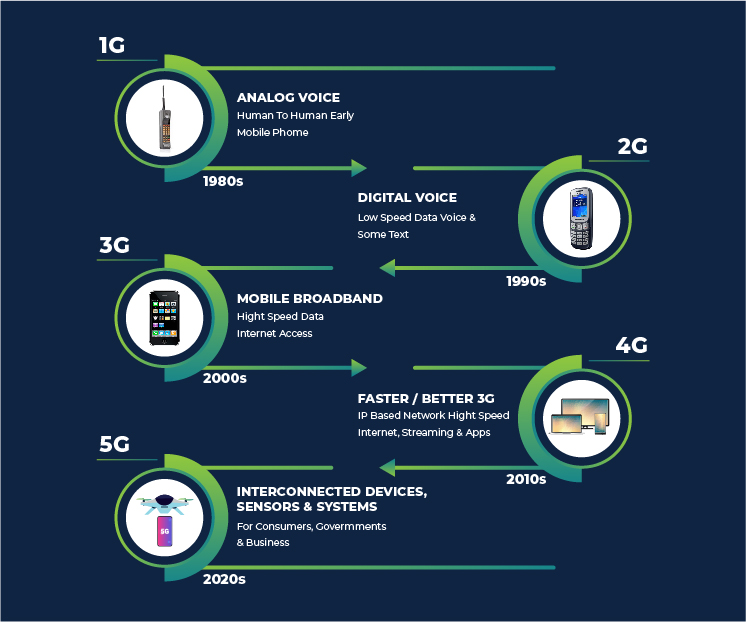
What is 5G?
5G, which stands for “Fifth Generation,” is the latest version of wireless technology and can potentially radically transform digital interaction. It’s intended to improve over 4G, including speed, latency, capacity, and dependability. 5G uses several distinct frequency bands (low, mid, and high) to improve wireless performance.
How does 5G differ from 4G?
The main differences lie in 5G and 4G performance and capabilities. Here are some significant differences:
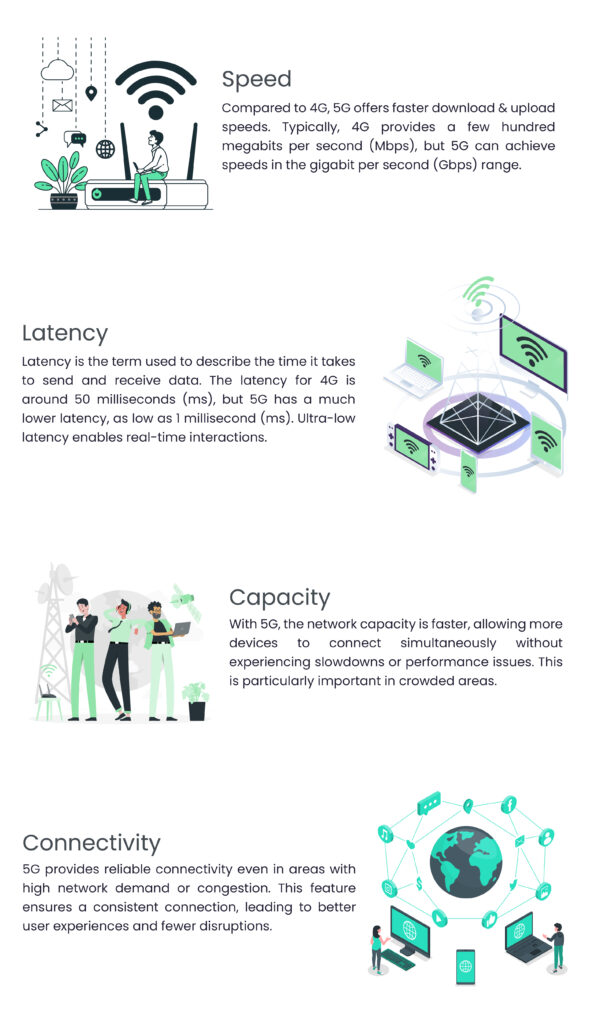
5G Impacts on the Performance of Mobile Apps:
Overall, 5G technology provides numerous benefits for mobile app development, including faster speeds, lower latency, enhanced user experiences, support for advanced technologies, increased capacity, and future-proofing capabilities. Developers can create high-performance apps that deliver exceptional user experiences by leveraging these advantages.
Quicker download and upload speeds:
With 5G technology, mobile apps can now benefit from super-fast download and upload speeds. This means users can easily access and share data without any delays. When you compare 4G to 5G, you’ll notice that 5G provides much faster data transmission speeds. This means that you can download or upload files much more quickly, and it also improves the performance of programs overall.
Reduce Delay:
5G’s ultra-low latency is one of its principal advantages. The time it takes for data to be transmitted between a device and a server is known as latency. 5G’s reduced latency enables mobile applications to accomplish near-instantaneous connectivity, resulting in more fluid interactions, greater responsiveness, and improved user experiences.
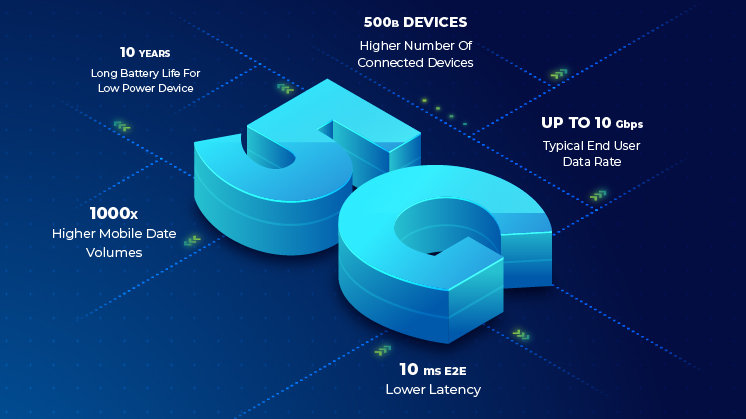
Bandwidth Expansion:
Mobile applications can manage more data because 5G technology has greater bandwidth. This allows programs to provide rich multimedia content, innovative capabilities, and complex data processing without compromising performance. It is now possible for mobile applications to provide high-definition video transmission, real-time collaboration, and interactive experiences.
Dependability enhancement:
5G networks provide increased dependability and stability even in densely populated or congested areas. Users of mobile applications can take advantage of persistent connectivity, minimizing interruptions and ensuring a reliable experience. This reliability is particularly advantageous for applications that require constant connectivity, such as real-time communication apps or those that rely on Internet of Things (IoT) integration.
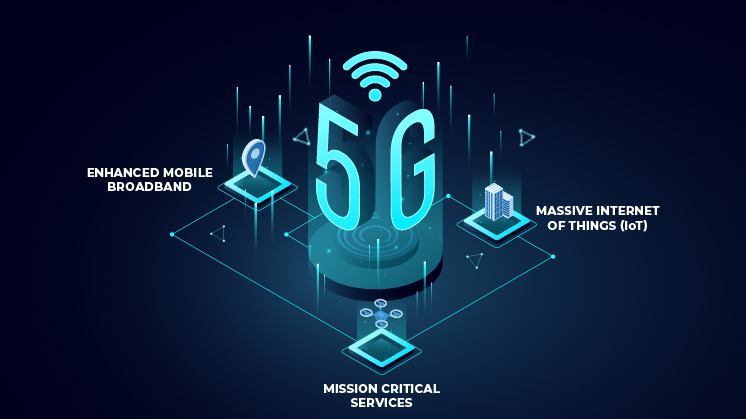
Impact of 5G on Mobile App Functionality:
More valuable visuals:
Because of its high bandwidth and low latency, 5G allows mobile applications to provide incredible visuals and create immersive visual experiences. 5G enables mobile applications to offer advanced augmented reality (AR) and virtual reality (VR) features, giving users access to more captivating and immersive content. This opens up exciting opportunities for mobile app gaming, retail, education, and various other interactive experiences.
Content with High Resolution:
5G’s ability to transmit high-quality content seamlessly within mobile applications is one of its primary advantages. With 5G’s increased bandwidth, mobile apps can offer consumers access to high-resolution videos, images, and other forms of media. This guarantees a flawless viewing experience without buffering or delays, making media-rich applications more pleasurable and engaging.
Internet of Things (IoT) and Machine Learning Integration:
The increased bandwidth and wireless connectivity of 5G facilitate seamless integration with IoT devices, enabling mobile applications to control and interact with various smart devices and sensors. 5G enables mobile applications to utilize artificial intelligence (AI) and machine learning (ML) algorithms for sophisticated functions such as customized suggestions, predictive analytics, and intelligent automation by virtue of its faster speeds and increased data processing capabilities.
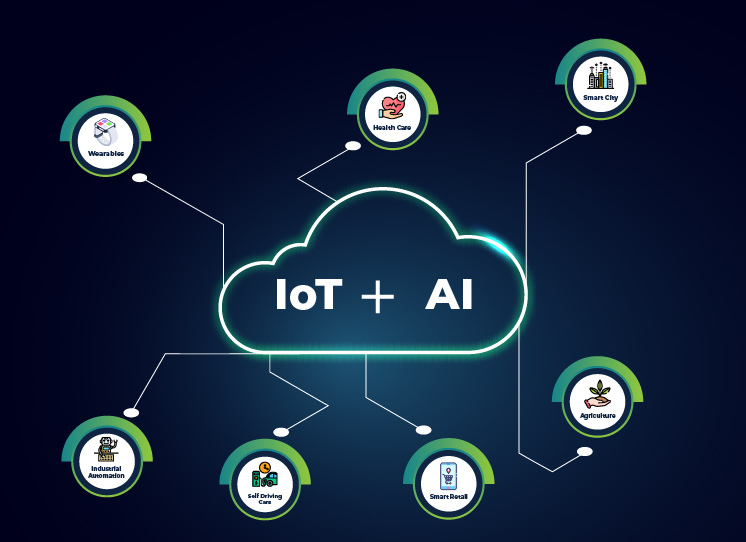
Immersive Experiences:
Using the capabilities of 5G, mobile applications could create immersive experiences that stretch the limits of what is possible. Examples of how 5G enhances customer engagement and satisfaction include real-time 3D modeling, interactive gaming, and immersive retail experiences. These immersive capabilities leverage 5G’s high-speed connectivity and low latency to enable seamless interactions and lifelike simulations.
Communications in Real-Time:
Due to 5G’s low latency, mobile apps can effectively support real-time communication capabilities. Video communications, audio conversations, live streaming, and other in-app real-time interactions become more reliable and consistent. This opens new possibilities for mobile app collaboration, remote work, customer support, and social connections.
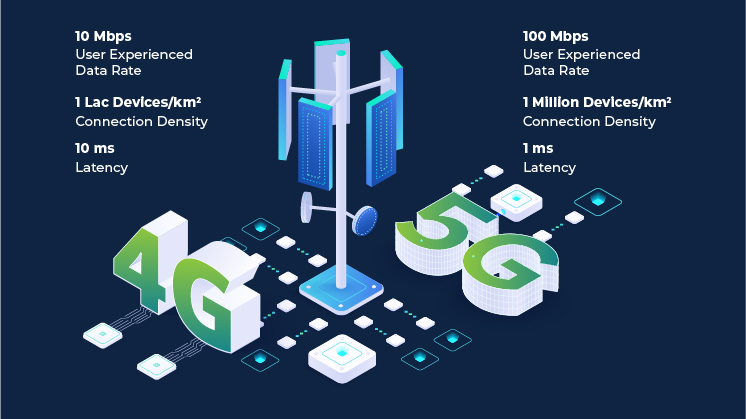
5G’s Impact on the App Development Process:
New Creativity Opportunities:
The advent of 5G technology creates previously unimaginable opportunities for innovation in mobile app development. Developers can investigate emerging technologies such as Internet of Things (IoT) integration, edge computing, and cloud services to create innovative applications with increased speed and functionality. 5G permits more sophisticated program functionality, seamless connectivity with smart devices, and enhanced user experiences.
New Developer difficulties:
5G has enormous potential but introduces new obstacles for mobile app developers. Due to 5G’s escalating data utilization, developers must optimize their applications for optimal performance across various network conditions. The enhanced capabilities of 5G networks pose potential security threats that developers must address, who must also ensure compatibility with various devices and network providers.
Network Testing and Optimization:
With 5G, developers must optimize their applications for varying network conditions and connectivity levels. It is essential to rigorously test app performance in various scenarios to guarantee seamless user experiences. Developers must consider factors such as network handoff, congestion, and varying signal intensity to provide consistent app performance across devices and locations.
New skills and expertise:
The implementation of 5G technology necessitates that developers acquire new skills and expertise. They must comprehend the nuances of 5G networks and their capabilities and limitations. This may entail learning new programming frameworks, comprehending network protocols, and keeping abreast of recent industry developments. Developers must perpetually adapt and acquire new skills to maximize 5G’s potential and produce cutting-edge mobile applications.
Conclusion:
5G technology signifies a significant milestone in mobile app development. 5G transforms app performance, features, and the development process, opening new opportunities for innovation and user experiences. As 5G expands globally, mobile app developers must embrace this technology to create cutting-edge apps that meet customers’ expanding needs. Developers may build mobile apps with richer content, immersive experiences, and seamless real-time communication using 5G’s speed, low latency, and higher bandwidth.
Developers must also optimize for different network conditions, ensure compatibility, and solve security issues with 5G. Developers can determine the future of mobile app development and provide great user experiences by embracing 5G and adjusting their skills and methods.
Frequently Asked Questions
-
What are the main benefits of 5G for mobile app development?
5G technology boosts mobile app development. These include quicker download and upload speeds, lower latency for real-time interactions, increased bandwidth for large data quantities, and improved dependability even in crowded network conditions. 5G lets developers create immersive mobile apps with richer graphics, high-resolution content, and real-time communication.
-
What are some new possibilities for mobile app development with 5G?
5G makes mobile app development exciting. 5G lets developers experiment with IoT integration, edge computing, and cloud services. Developers may design apps with real-time interactivity, AR, VR, and high-quality streaming content with quicker speeds and minimal latency. 5G integrates smart devices seamlessly, enabling better automation, remote control, and personalized app experiences.
-
What are some of the 5G mobile app development challenges?
Mobile app developers face both benefits and drawbacks from 5G. Given 5G’s increased data consumption, improving app performance across network conditions and devices is difficult. Developers must make their apps interoperable with several network providers and address 5G security risks. Developers may need more skills and resources to fully utilize the 5G spectrum.
-
What are the future trends for 5G mobile app development?
The future of 5G mobile app development is promising and filled with potential. Some key 5G mobile app development trends to watch out for include:
● AR and VR experiences
● Internet of Things (IoT)
● Machine Learning
● Real-time communication
